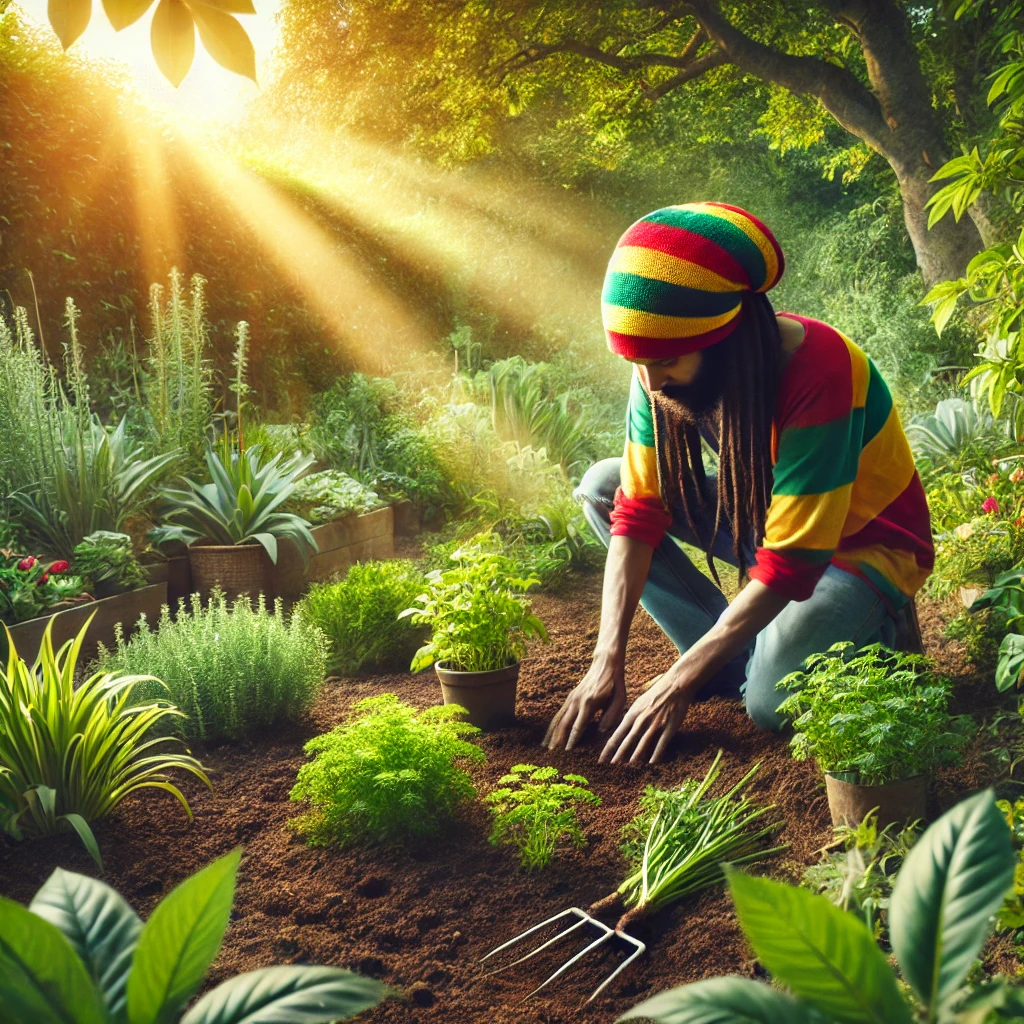For Rastafarians, nature is not just a backdrop – it’s an integral part of their spirituality and way of life. Living in harmony with the Earth, respecting its resources, and maintaining balance are core principles in Rastafarian culture. In many ways, Rastas were living sustainably long before it became a global trend.
The Ital Way of Life
One of the most recognizable aspects of Rastafarian sustainability is di Ital lifestyle. Ital, derived from “vital,” refers to a natural and plant-based diet that promotes health and connection to the Earth. Ital food is free from chemicals, processed ingredients, and additives, focusing on natural, whole foods like fruits, vegetables, grains, and herbs.
By eating Ital, Rastas not only nurture their bodies but also protect the planet by reducing their reliance on industrialized farming and unsustainable food production practices. Ital is about keeping di body clean, while also respecting Jah’s creation.
Herbal Medicine and Natural Remedies
In keeping with their deep connection to nature, Rastafarians use natural herbs and plants for healing. The use of herbs like cannabis (referred to as ganja), sage, and moringa plays a central role in maintaining health and spiritual clarity. Rastas view these plants as gifts from Jah, meant to heal the body and mind without relying on artificial or chemical-based medicines.
Herbal medicine promotes sustainability by encouraging a return to natural, earth-based remedies instead of manufactured pharmaceuticals that often harm the environment through their production.
Respect for Jah’s Creation
Rastafarians believe that the Earth (sometimes referred to as “Mother Earth” or “Zion”) is a sacred creation of Jah (God). It’s their responsibility to protect and preserve it. This belief is reflected in their daily lives, whether through sustainable farming, organic gardening, or using renewable resources like bamboo and hemp for everyday items.
Rastas avoid contributing to the Babylon system, which represents the materialistic, exploitative, and environmentally destructive aspects of modern society. Instead, they emphasize living simply, naturally, and in harmony with Jah’s creation.
Avoiding Materialism and Overconsumption
Rastafarianism also promotes an anti-materialistic approach to life. By rejecting the consumerism of Babylon, Rastas limit their impact on the environment. They believe that true wealth comes from spiritual richness, not material possessions.
Dis connection to the Earth fosters a mindset of using only what is necessary and avoiding waste. From water conservation to organic farming, Rastas live with an awareness of their footprint on the planet.
Embracing Permaculture and Self-Sufficiency
Many Rastas practice permaculture – a sustainable farming system that works with nature rather than against it. By creating eco-friendly environments where plants, animals, and humans coexist in balance, Rastas promote biodiversity, water conservation, and soil health.
Through permaculture and sustainable farming, Rastas become self-sufficient, growing their own food, using natural fertilizers, and reducing their dependency on industrial agriculture.
Rastas and Environmental Activism
In recent years, Rastafarians have been more vocal in the fight against climate change and environmental destruction. Their belief in the sacredness of the Earth aligns perfectly with modern environmentalism. Many Rastas take part in eco-activism, promoting organic farming, reforestation, and efforts to reduce pollution.
Rasta teachings about love, unity, and respect for Jah’s creation resonate with the goals of global environmental movements, making them natural allies in the push for a more sustainable future.
A Natural Path Forward
Rastafarianism offers a timeless approach to sustainability. By living in tune with nature, embracing a plant-based diet, and practicing self-sufficiency, Rastas show the world a path toward a more harmonious and sustainable way of life.
Di Rasta way teaches us that by respecting Jah’s Earth, we can create a healthier, more balanced planet for generations to come.

